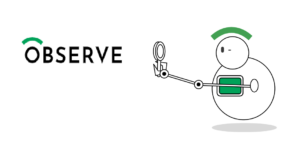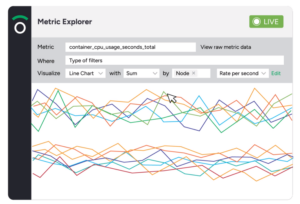
Observe Turns to GenAI to Bolster Observability

Observe, the Snowflake-based observability platform, today announced a major product update that it claims will enable users to analyze much greater volumes of logs, metrics, and traces through GenAI. It also announced another $50 million in venture funding.
The explosion of SaaS applications over the past decade has coincided with an explosion of observability data that few organizations are well-equipped to handle. Not only is the volume of logs, metrics, and traces increasing at a geometric rate, but the number of tools organizations use to understand this data is also proliferating at an unsustainable rate.
Observe, which was founded in 2017 by technologists from Splunk, Snowflake, Wavefront, and Roblox, was created to help consolidate both the data and the tool sprawl. The company’s approach was to centralize as much of the stack as possible.
By storing all of the observability data on the Snowflake data warehouse, and then providing a single set of tools to address the specific needs of software engineers tasked with tracking down application issues, the San Mateo, California company, aimed to help customers deal with this big data problem.
The company says that today’s launch of Hubble represents the biggest product development in its six-year history. Many of the enhancements focus on user interface enhancements, which the company says enable users to “discover things they could never see before at a scale previously thought impossible.”
For example, a new “live” mode enables data to be queried in 20 seconds or less from the time it was created. That should help address the latency that exists in many large data sets. The onboarding experience has also been simplified with this release.
Observe has dipped into the generative AI bucket to deliver more user interface automation with Hubble. For instance, the company has delivered an in-product chatbot that responds to natural language questions about product capabilites, how to tasks, and error messages. There’s also a new regular expression (RegEx) generation tool that can parse data to add structure to logs on-the-fly.
Observe is also providing a GenAI assistant that’s built into Slack and designed to help users troubleshoot issues and summarize threads for incident response. Finally, there’s OPAL Co-Pilot, a new GenAI application that generates OPAL, which is Observe’s query language, in response to natural language inputs.
Observe CEO Jeremy Burton the new capabilites will speed up the time to resolution when working with observability data. “We’ve always viewed observability–first and foremost–as a data problem,” Burton says in a press release. “To troubleshoot unknown problems, users need immediate access to relevant contextual data”
The company, which counts F4, Linedata, Auditboard, and Topgolf among its customers, also launched several new data access options that will enable users to move their Observe data out of Snowflake, including an API, a command line interface (CLI), a comma separate value (CSV) export option, and a data sharing option.
It also launched new Observe Apps, or pre-built packages of content containing Observe’s opinion on how to observe specific environments. It offers apps for MySQL, PostgreSQL, MongoDB Atlas, Prometheus, OpenAI, Threat Intelligence, Security Onion, and Orca Security. In addition to apps, it offers more than 250 connectors to other data sources.
Finally, Observe announced that it has raised $50 million in a Series A3 round of financing led by Sutter Hill Ventures. It has raised $164.5 million to date. For more info, see the company’s website at www.observeinc.com.
Related Items:
VCs Open Up the Checkbook for Observability Startups
There Are Four Types of Data Observability. Which One is Right for You?
Who’s Winning In the $17B AIOps and Observability Market




























